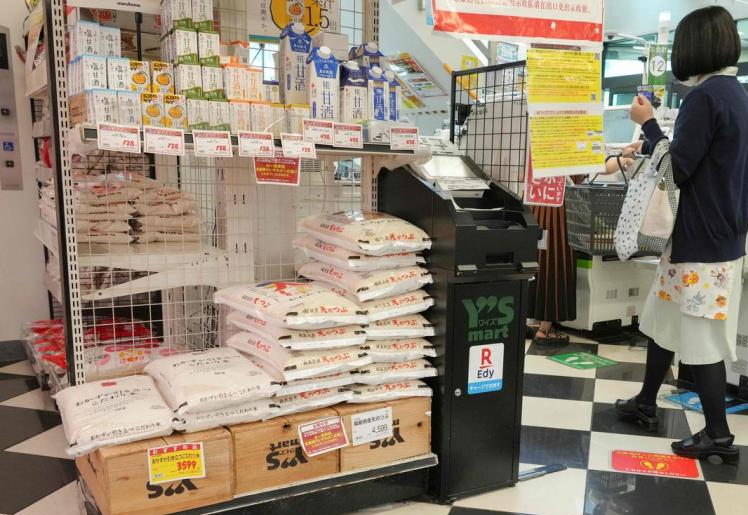
Affected by the soaring price of rice, price-sensitive Japanese consumers have begun to eat less rice. To relieve business pressure, many chain restaurants and food enterprises have also adjusted their product structures and shifted to lower-cost noodle products.
Kyodo News reported that data from Japan's Ministry of Agriculture, Forestry and Fisheries shows that the price of rice in Japan has doubled since last year and remains at a high level to this day. The rally was initially triggered by production cuts due to bad weather. Despite the government's use of national reserves to stabilize supply, the average retail price of 5 kilograms of rice remained as high as 4,176 yen in the week ending June 8.
Tokyo-based chain restaurant company Antworks is renowned for selling "legendary pork cutlet rice", but in May this year, the company opened its first ramen specialty store and plans to add three more ramen stores by February next year. A company spokesperson said that the price of rice has risen by more than twice compared to several years ago. If the company continues to rely solely on its main product, the rice bowl, its future business prospects will be even more challenging.
Another large chain restaurant group, Yoshinoya Holdings, is also strengthening its ramen-related business. The company's director said that against the backdrop of the Japanese beef donburi market approaching saturation, the ramen business helps achieve a more flexible balance between ingredient costs and product structure, reducing reliance on rice and meat raw materials.
In addition to catering enterprises, there is also a trend in supermarket channels where consumers actively seek substitutes for rice. Food company TableMark said that the sales of its frozen udon products during the period from April to May this year increased by approximately 10% compared with the same period last year. Kikkoman's ready-to-eat udon soup base and related ingredients also recorded a sales growth of approximately 10% in the three months ending at the end of May.
Dairy company Meiji Holdings stated that since April 2024, the monthly sales of the "Meiji Bulgarian Yogurt" series have maintained an annual growth rate of approximately 10%, indicating that consumers are also inclined to choose more alternative non-staple food products in the process of adjusting their dietary structure.

On January 15, 2026, the US military announced the seizure of an oil tanker named "Veronica" in the Caribbean Sea.
On January 15, 2026, the US military announced the seizure …
At the 2026 J.P. Morgan Healthcare Conference, a joint anno…
For much of 2025, the market was rethinking whether the dol…
The recent undercurrents in the international situation, wi…
The news of Musk's Neuralink launching mass production of b…
In January 2026, the US Department of Energy announced a $2…